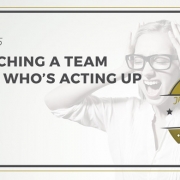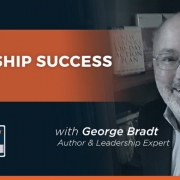Goal Setting for 2012. Is A Doubling Of Income Possible?
Well, you probably read that and say, “I don’t see any way at all I can double my sales next year. Especially in this market.”
In fact, that may be so much of a stretch that you decide NOT to watch the video. And what a mistake that would be.
This Whiteboard Wednesday is designed to “shock you” a little. Maybe you just need a jolt to your system so you can break free with some new thoughts.
Bill Caskey takes you through a Goal Setting exercise that the Caskey team takes their clients through. So, grab pencil and paper and play it out as you watch it unfold in front of you.
After you’re done, we think you’ll see things a little differently. So, you may not get to a doubling (or, you might) but what we’re after is a “change of thought.” And that will guide you to new goals you will accomplish.
Also mentioned in the video:
- No more guessing at how to word your most important emails. This eBook tells you EXACTLY what to write! www.emailitsellersguide.com
- Join Bill Caskey and Bryan Neale every Monday for The Advanced Selling Podcast. www.advancedsellingpodcast.com
- Follow Bill on Twitter: @billcaskey
The Video Transcript…
Hi. Bill Caskey here. Welcome back to Whiteboard Wednesday. We hope you’re enjoying our new versions of Whiteboard Wednesday. We’re trying to be very pinpointed and focused on what we teach in these sessions.
So today, because we’re nearing the end of 2011 and we’re embarking on a brand new year, at least if you’re watching this in December, I want to talk a little bit about goal setting. We all talk about goal setting and this is the time of year when it happens. It really doesn’t matter when you set goals. Anytime is OK but it seems like December at the end of the year is a good time to do that. This is an exercise that we do for our clients near this time and it really helps maybe break some things free in your own mind so that we can sort of jolt you into a new way thinking.
We talked in our training about how we always want to be working on how we think, how we act and what we say and how we think is really important especially when it comes to goal setting. So here is your exercise for today. However you measure yourself, whether it’s personal income, personal revenue, the number of new accounts you get, whatever that ultimate measurement is, I want you to take it and I want you to double it. OK?
So let’s say for example that you brought in $1 million of revenue this year. Well, you could bring in $1 million of income too but let’s say your territory did $1 million and you’re setting your goals for next year. The traditional way to do it is, “Well, where do I think the market is going to grow? Where else can I go?” So you increase it by 10 percent and that becomes your quota.
I want you to throw that out at least for this exercise and I want you to double it. OK? So if you were at $1 million, now your new goal is $2 million. Now the first thing you say to yourself when we talk about that is, “Oh, there’s no way. I mean there’s just no way I can do it,” and actually you’re probably right. There is no way you can do it with the current level of thought.
So how do you think? How you think has led you to $1 million a year. How you think leads to your actions, which leads to your outcomes and so how you think got you here but how you think will get you here as well. It’s just not going to be the same thoughts. So I want to give you three areas of thought that you’re going to have to consider and analyze and maybe do a little reflection on as you set your goal for this doubling for next year.
Number one is, “How do you think about your time?” How do you think about your time? Do you think about your time in terms of how many dollars per hour it’s worth? That’s probably not a bad way to think about it. We know in sales that you have a lot of time that’s low-pay time and you have some time that’s high-pay time. The highest achievers will maximize the amount of time they spend up here in high-pay time.
Now I also know that a lot of our jobs have low-pay time built into them. I mean we don’t have assistance and support staffs of hundreds of people that drive us to appointments and that do all of our proposals for us. I understand that but if you can be much more conscious over the next month about how you really have to change your perception of your time and what it’s worth per hour and I think if you start to do that, then you’re going to naturally – it’s not going to take a lot of work. You’re going to naturally find yourself doing more of this high-pay time.
I’ve got one client who even suggests that they only have a certain number of hours of high-pay time each year. You can’t work eight hours a day of high-pay time but their high-pay time is being in front of customers and so they say, “You know what? How do I maximize the amount of time in front of customers and that’s $1000 an hour time?”
So the whole idea here is to be more focused and more attentive. Pay attention to the time and the cost of your time or the value of your time. So that’s number one.
Number two is, “What is your role?” What is your role? I believe that if you get this wrong, you will get this wrong. Here’s an example. Most of us have missions, have territories, have gross numbers of sales that we need to do a year or that our income depends upon. So what we’ll do is say, well, we’re in the sales role so we will go out and call on those people one at a time and if we call on enough of those people and build this massive funnel of prospects, that some of those people are going to want proposals and some of those people are going to become clients and we’re going to make our goal.
That is a current model of thinking. I’m not saying it’s the wrong thinking but if your role is to sell, then that will be your reality but if your mission – rather than role, think about mission. What is your mission? I can’t even spell mission. What is your mission? Is your mission to bring in $2 million and to grow a territory, to double a territory? If that’s your mission, you may have several different roles that wrap up to that.
For example, maybe your highest pay time is not spending time in front of a prospect talking to them about their needs and pains. It’s not maybe that at all. Maybe it’s going out and hiring someone to do that for you or maybe it’s writing an article that could go to a thousand people or a blog that could go to tens of thousands of people rather than going and calling on one person. I think we in sales sometimes get our roles messed up. We think of ourselves as salespeople. What does that mean? Well, it means face to face meetings, one-on-one meetings and that’s not the way it should be anymore especially with the internet and especially with your ability to create digital content and publish things. You got to look at your overall mission, not just the role of salesperson.
The third area we want to talk about is your position. How are you positioned with your prospects? Do they see you as this salesperson? Do they see you as needy, as a beggar, someone who comes in with a handout when you need the business? How do you position yourself and what position do they see? Now really, it’s less about what you do and more about how they perceive you.
So to the extent that you can change your position, I want you to position yourself as an expert or an authority on whatever it is you do, an expert or an authority. Now, you could say, “Well, what’s the difference between expert and authority?” Some people believe authority has a little bit higher definition because it has to be with how you’re viewed; but whatever it is, I want you to position yourself this way, not as a salesperson. I think the days of positioning yourself as a salesperson, as a person who comes in and slaps people on the back and has a big smile on their face, real excited and does PowerPoint presentations, trying to convince you to buy is over.
I would rather see you position yourself as a place of expert, authority, knowledge, resource and you can’t just know those things. You have to actually package that stuff up and generate a following through that. I was talking to a guy this morning who really understands this and he’s really trying to do this and I said, “Have you written an article ever?” He goes, “Yes, I wrote an article 12 years ago.” Well, I said, “OK, perfect. Every 12 years, you should write an article but take that article and do something with it now. Is the premise still relevant?” He says, “Oh sure. I could literally repackage that.” I said, “OK, do it.” Take a little bit of it, repackage it, repurpose it and create something that causes people to say, “Hey, you know what? He knows what he’s talking about there.”
Now don’t go around telling people you’re an expert. Bad idea. Position yourself that way through how you publish. Even the questions you ask and even the kind of process you take people through helps you reposition yourself.
So those three things together, if you can shock your system into this by looking at the three elements of thought there – and there’s a lot more to it. There are several others that you should be thinking about. These are the most obvious three that I think you can do.
So I hope that has helped. Spend a little time on this over the holidays, over the next couple of weeks and I think what you will find is maybe it’s not two million but maybe it’s 1.5 and you eventually get there easier because you’ve changed your thinking.
Hope you’ve enjoyed this episode of Whiteboard Wednesday. Bryan and/or Brooke and/or I will be back in the future. Bye. [0:08:27]





